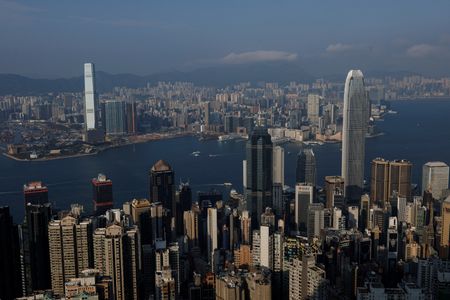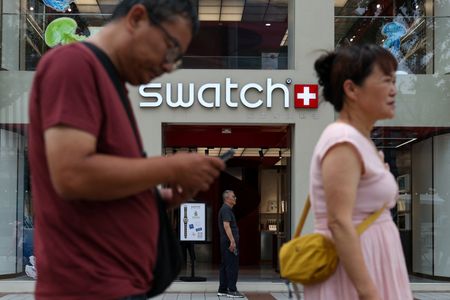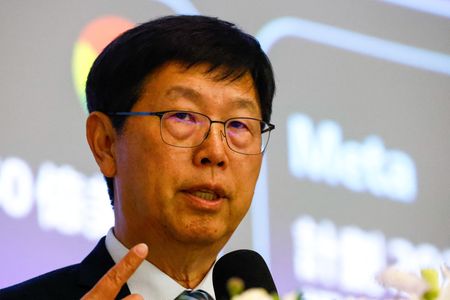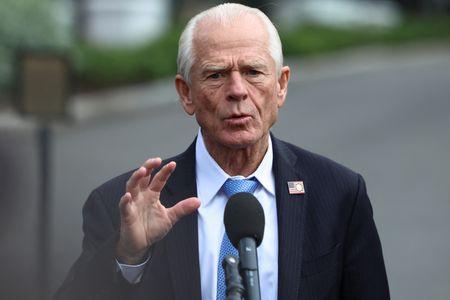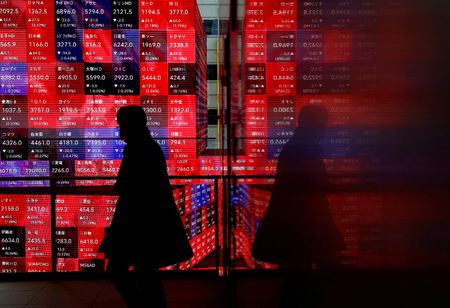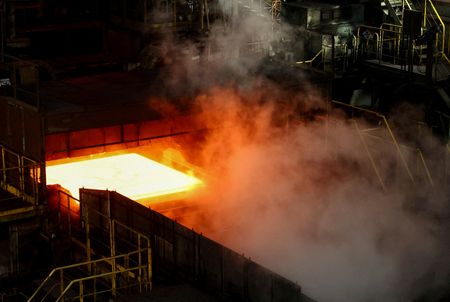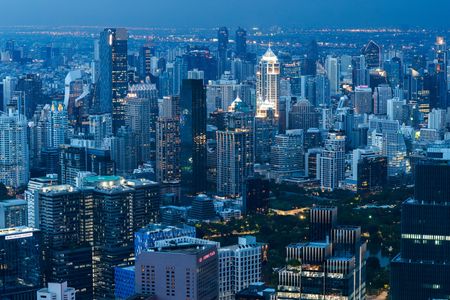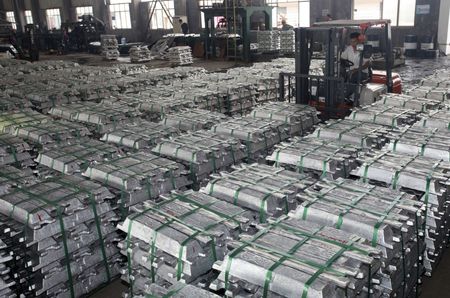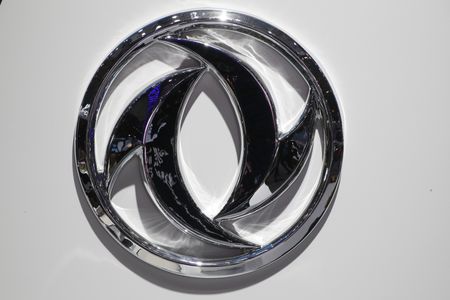By Clare Jim and Selena Li
HONG KONG (Reuters) -Hong Kong’s debt-laden developers and their creditors are set to face intensifying financial pressure as bond maturities are slated to jump by nearly 70% next year amid falling sales and valuations for the city’s economically crucial property sector.
Road King last week became the first city-based developer to default on bond coupons since China’s property debt crisis began in 2021, following the first loan default by listed peer Emperor International earlier this year.
Slim prospects for a revival in the commercial property sector in the near term and fewer sources of raising fresh capital mean more developers would struggle to meet repayment obligations in Hong Kong, analysts said.
Property and its related sectors account for roughly a quarter of Hong Kong’s GDP, and the industry’s rising non-repayments will not only weigh on its economic prospects but also cast a cloud over creditors, including HSBC, with sizeable exposure to developers in the Asian financial hub.
Local property developers’ bond maturities will climb to $7.1 billion in 2026 from $4.2 billion this year, according to LSEG data and Reuters calculations.
S&P Global Ratings analyst Edward Chan said that he would not rule out the possibility of more small-sized developers defaulting in the next 12-24 months because banks are cutting their loan exposure to them.
“It will be at a point where there is actually no chance for them to repay such loans,” Chan said.
Developers, which hold mainly office and retail assets, are under huge pressure due to the challenge to sell assets to raise cash in those two segments that have seen valuations drop more than 50% from 2019 peaks and with no recovery in sight, he said.
More fire sales, on the other hand, would further depress the valuations and affect the overall industry, including cash-rich developers, analysts said.
Among the cash-strapped debt issuers, New World Development, one of Hong Kong’s top four developers, will face bond repayment obligations of $168 million next year and of another $630 million in 2027, while Lai Sun Development will have $524 million due next year.
New World, seen as one of the biggest risks to the city’s financial and property markets due to its HK$180 billion ($23 billion) borrowings, averted default by sealing a $11.2 billion debt refinancing deal in June.
New World did not respond to a request for comment. Lai Sun declined to comment.
HEFTY CHARGE
The majority of Hong Kong developers’ debt comes from bank borrowings.
In a sign of the growing bad loans in the sector, Hang Seng Bank took a hefty HK$2.5 billion charge on Hong Kong commercial real estate in the first six months of this year – up 224% from a year ago.
Its parent HSBC updated its internal model that resulted in its Hong Kong commercial real estate loans with significant credit risk, but those that had not yet defaulted, tripling to $18.1 billion at end June this year.
HSBC said the classification of problematic loans that saw a big rise was not an absolute indicator of credit quality, and that it was common for external events and market conditions to lead to increases in that classification without resulting in actual defaults.
Hang Seng Bank declined to comment beyond its public comment after its earnings during which it said the rise in expected credit losses was due to a prudent approach amid an increase in allowances for new defaulted exposures, and other factors.
Commercial real estate accounts for around 9% of total bank lending in Hong Kong and up to 70% of these loans are secured with around 45%-55% loan-to-value ratio, according to S&P, which has forecast a rise in impaired loan ratios for the local banking sector.
But Eddie Yue, the head of Hong Kong’s de-facto central bank, said the banking system is “well-capitalised and has sufficient provisions and good financial strength to withstand market volatilities”, citing key indicators including capital adequacy and provision coverage ratio.
Some banks have decided not to categorise a defaulted loan as such or demand immediate repayments from distressed developers on worries about a worsening asset quality and the domino effect it could have across the sector, said market observers.
And some have also refrained from seizing pledged assets on defaulted loans of developers on concerns it would be hard to recover the debt and crowd-out a market that has already seen commercial asset prices plunge, they said.
“Now banks are actively deciding not to recall these loans too much – they want to buy time for a market recovery,” said JLL Hong Kong’s chair Joseph Tsang, adding curtailing lending to developers could hurt economic activity as a whole.
($1 = 7.8245 Hong Kong dollars)
(Reporting by Clare Jim and Selena Li; Editing by Sumeet Chatterjee and Muralikumar Anantharaman)

